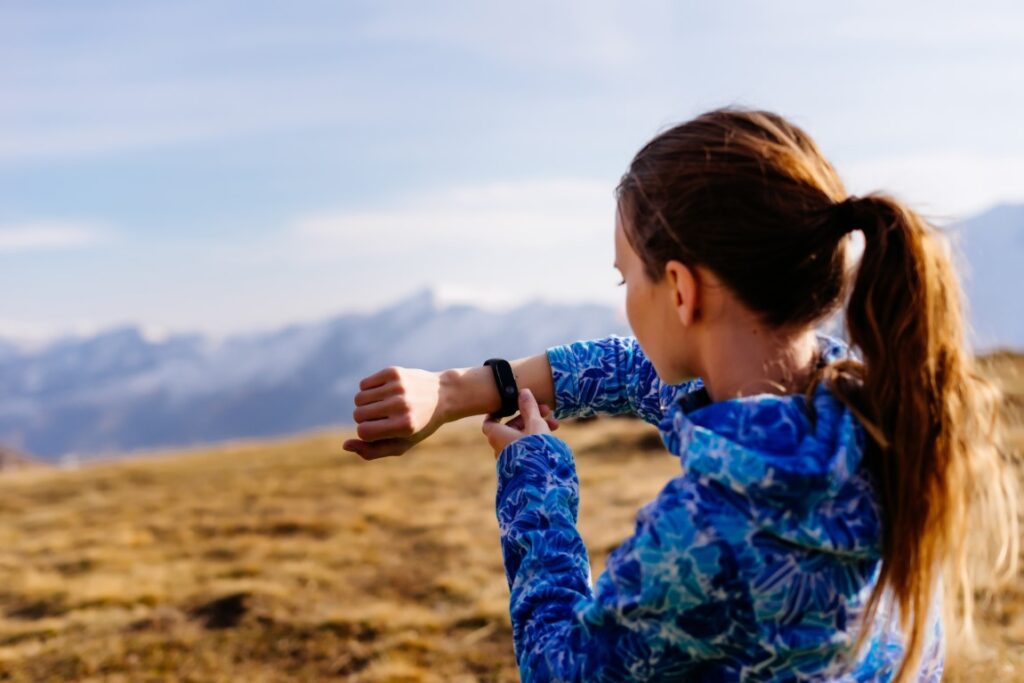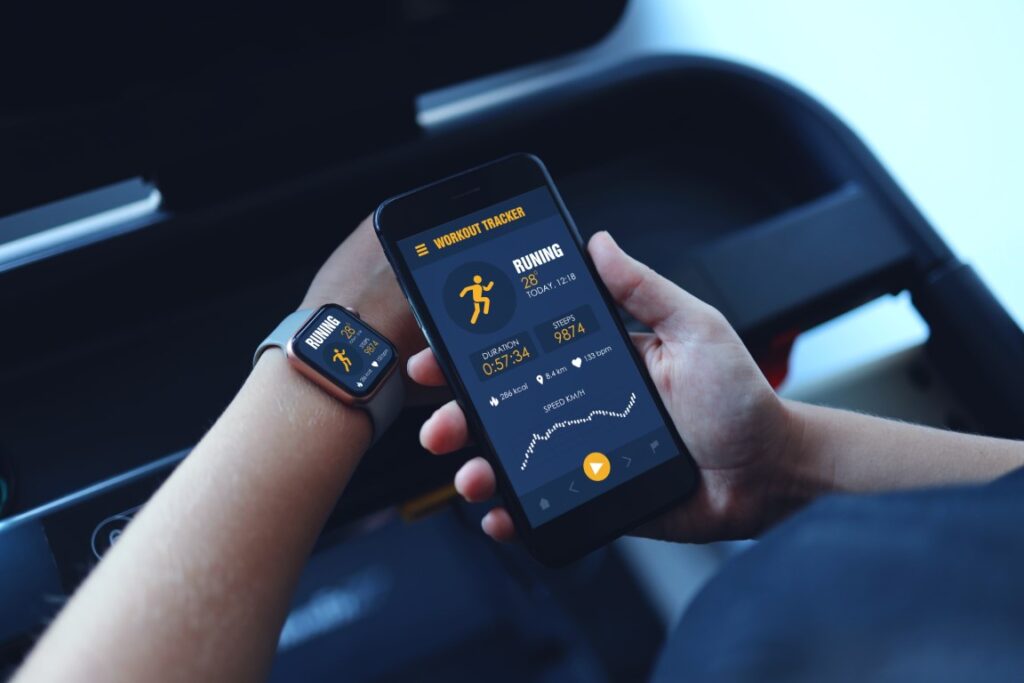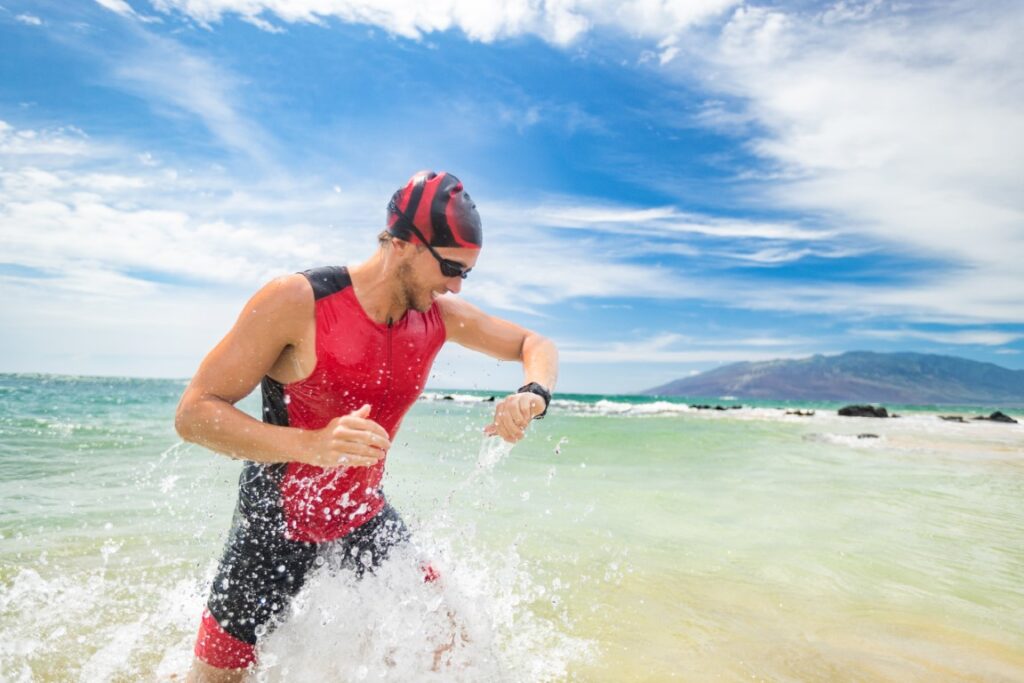To retain information about your daily activities, all trackers employ sensors to observe your movements. They frequently connect and sync wirelessly with a computer or other mobile device.
The different sorts of information tracked by trackers can include steps taken, sleep duration, heart rate, skin temperature, and perspiration amounts.
To measure your steps and other up-down, side-to-side, and front-to-back movements, the majority of trackers employ an accelerometer. When looking for a fitness tracker or smartwatch, you should carefully analyze your options, just like when purchasing any new technology product.
If you’re looking for a wearable device, there are numerous possibilities from various manufacturers with a variety of features and trade-offs. The following are the main considerations you should make before purchasing a smartwatch or fitness tracker.
Price
Right away, fitness trackers can be significantly less expensive than smartwatches. This is frequently caused by the distinction in features and priority. To begin with, a smartwatch is a wearable gadget with a design resembling that of a standard timepiece. These are only a few of the features that set them apart from conventional wristwatches, along with connection, sensors, and computer intelligence. In addition to measuring various fitness and health parameters, smartwatches also give you a handy interface for connecting with your smartphone. In addition to having strong usefulness, they typically have appealing aesthetics.

Tracking Capability
Companies add a wide variety of sensors to these wearable gadgets. In general, more sensors are preferable because they allow you to measure more variables. Wearables can monitor a variety of bodily functions, including blood oxygen levels, sleep, steps taken when walking, and heart rate and body temperature. As a result, before you can decide which gadget would be your best choice, you need to be aware of your needs. You could need assistance with your weight loss efforts or a tool to encourage efficient exercise. You might want to keep track of your hydration or take a certain number of steps each day. Depending on your objective, you will need to give some tracking skills more importance than others. The skills you include should be those that align with your objectives.

Battery
You ought to always carry a tracking device with you. Fortunately, the most of them have outstanding battery life, which is something it should have for that. When compared to specific fitness trackers, smartwatches often have a shorter battery life. Brighter displays with greater display technology are frequently the main cause of this. While many fitness trackers have a battery life of up to two weeks, smartwatches have to compromise on battery life in order to have more advanced functions and better displays.
Water Resistance
When choosing a smartwatch or fitness tracker, water resistance is equally crucial. The good news is that more and more products are coming with this capability pre-installed. For instance, the water resistance of the Fitbit Charge 5 and Xiaomi Mi Band 6 is up to 50 m (164 feet) deep. Examine the details for each gadget you are considering because the level of water resistance differs between models. Additionally, don’t mistake water resistance for splash resistance. Splash-resistant electronics shouldn’t be submerged in water. Make sure it can tolerate water for a long time without being harmed for peace of mind. Another benefit is dust resistance, which is offered on the Apple Watch Series 7.

Accuracy
No tracking system is perfect. They analyze footsteps, punches thrown, stairs climbed, and sleep hours using sensors and algorithms. That implies that there is some degree of uncertainty. You might wish to look into a gadget with a specific function if you require hard data. In general, wrist-mounted in-device sensors are less accurate than heart rate monitors that strap to your chest and send data to your activity tracker.
Comfort Making sure your fitness tracker fits properly is one of the best ways to maximize its potential. Additionally, a tight fit could guarantee that your monitoring gadget gives more precise measurements. Since you’ll be using your activity tracker for the majority of the day, it should be comfy. Additionally, it needs to be cozy enough to wear while you sleep.



